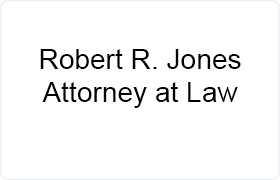La Marque Criminal Lawyer, Texas
Sponsored Law Firm
-
 x
x

Click For More Info:
-
Robert R. Jones Attorney at Law
3526 E. FM 528 Suite 204 Friendswood, TX 77546» view mapCriminal Defense Expert Representation for Reasonable Rates
If you need representation, call me 24/7.
800-883-8760
Lynette K. Briggs
Juvenile Law, Car Accident, Federal Appellate Practice, Domestic Violence & Neglect,
Status: In Good Standing Licensed: 24 Years
Garabet K. Dakarmandjian
Juvenile Law, Wills, Criminal, Personal Injury
Status: In Good Standing Licensed: 15 Years
Susan Anson Wilk Martin
Juvenile Law, Other, Criminal, International Tax
Status: In Good Standing Licensed: 51 Years
Mark J. Kelly
DUI-DWI, Estate Planning, Personal Injury, Federal Appellate Practice, Immigration
Status: In Good Standing
Gilbert Torres
Family Law, Commercial Real Estate, Criminal, Wills
Status: In Good Standing Licensed: 44 Years
Ronald F. Plackemeier
Commercial Real Estate, Dispute Resolution, Criminal, Administrative Law
Status: In Good Standing Licensed: 46 Years
 Robert Jones Friendswood, TX
Robert Jones Friendswood, TX AboutRobert R. Jones Attorney at Law
AboutRobert R. Jones Attorney at Law Practice AreasSpecializations
Practice AreasSpecializations
